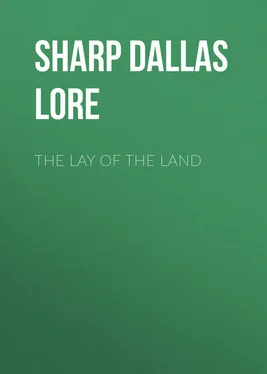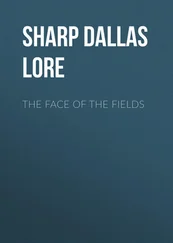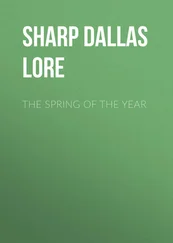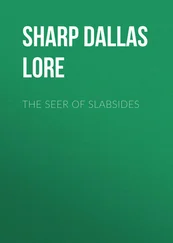Dallas Sharp - The Lay of the Land
Здесь есть возможность читать онлайн «Dallas Sharp - The Lay of the Land» — ознакомительный отрывок электронной книги совершенно бесплатно, а после прочтения отрывка купить полную версию. В некоторых случаях можно слушать аудио, скачать через торрент в формате fb2 и присутствует краткое содержание. Жанр: Природа и животные, foreign_antique, foreign_prose, на английском языке. Описание произведения, (предисловие) а так же отзывы посетителей доступны на портале библиотеки ЛибКат.
- Название:The Lay of the Land
- Автор:
- Жанр:
- Год:неизвестен
- ISBN:нет данных
- Рейтинг книги:3 / 5. Голосов: 1
-
Избранное:Добавить в избранное
- Отзывы:
-
Ваша оценка:
- 60
- 1
- 2
- 3
- 4
- 5
The Lay of the Land: краткое содержание, описание и аннотация
Предлагаем к чтению аннотацию, описание, краткое содержание или предисловие (зависит от того, что написал сам автор книги «The Lay of the Land»). Если вы не нашли необходимую информацию о книге — напишите в комментариях, мы постараемся отыскать её.
The Lay of the Land — читать онлайн ознакомительный отрывок
Ниже представлен текст книги, разбитый по страницам. Система сохранения места последней прочитанной страницы, позволяет с удобством читать онлайн бесплатно книгу «The Lay of the Land», без необходимости каждый раз заново искать на чём Вы остановились. Поставьте закладку, и сможете в любой момент перейти на страницу, на которой закончили чтение.
Интервал:
Закладка:
There is a need in the nature of man for many things, – for a wife, a home, children, friends, and a need for winter. The wild goose feels it, too, and no length of domesticating can tame the wild desire to fly when the frosts begin to fall; the woodchuck feels it; carry him to the tropics and still he will sleep as though the snows of New England lay deep in the mouth of his burrow. The partridge’s foot broadens at the approach of winter into a snowshoe; the ermine’s fur turns snow-white. Winter is in their bones; it is good for them; it is health, not disease – with snowshoes provided and snow-colored fur.
Nature supplies her own remedies. Winter brings its own cure, – snowshoes and snowy coats, short days and long nights, the narrowed round, the widened view, the open fire, leisure, quiet, and the companionship of your books, your children, your wife, your own strange soul – here on the farm.
Where else does it come, bringing all of this? Where else are conditions such that all weather is good weather? The weather a man needs? Here he is planted like his trees; his roots are in the soil; the changing seasons are his life. He feeds upon them; works with them; rests in them; yields to them, and finds in their cycle more than the sum of his physical needs.
A man lives quite without roots in a city, like some of the orchids, hung up in the air; or oftener, like the mistletoe, rooted, but drawing his life parasitically from some simpler, stronger, fresher life planted far below him in the soil. There he cannot touch the earth and feed upon life’s first sources. He knows little of any kind but bad weather. Summer is hot, winter is nasty, spring and autumn scarcely are at all, for they do not make him uncomfortable. The round year is four changes of clothes – and a tank-sprinkled, snow-choked, smoke-clouded, cobble-paved, wheel-wracked, street-scented, wire-lighted half-day, half-night something, that is neither spring, summer, autumn, nor winter.
A city is a sore on the face of Nature; not a dangerous, ugly sore, necessarily, if one can get out of it often enough and far enough, but a sore, nevertheless, that Nature will have nothing kindly to do with. The snows that roof my sheds with Carrara, that robe my trees with ermine, that spread close and warm over my mowing, that call out the sleds and the sleigh-bells, fall into the city streets as mud, as danger on the city roofs, – as a nuisance over the city’s length and breadth, a nuisance to be hauled off and dumped into the harbor as fast as shovels and carts can move it.
But you cannot dump your winter and send it off to sea. There is no cure for winter in a tip-cart; no cure in the city. There is consolation in the city, for there is plenty of company in the misery. But company really means more of the misery. If life is to be endured, if all that one can do with winter is to shovel it and suffer it, then to the city for the winter, for there one’s share of the shoveling is small, and the suffering there seems very evenly distributed.
Here on the farm is neither shoveling nor suffering, no quarrel whatever with the season. Here you have nothing to do with its coming or going further than making preparation to welcome it and to bid it farewell. You slide, instead, with your boys; you do up the chores early in the short twilight, pile the logs high by the blazing chimney and – you remember that there is to be a lecture to-night by the man who has said it all in his book; there is to be a concert, a reception, a club dinner, in the city, sixteen blissful miles away, – and it is snowing! You can go if you have to. But the soft tapping on the window-panes grows faster, the voices at the corners of the house rise higher, shriller. You look down at your slippers, poke up the fire, settle a little deeper into the big chair, and beg Eve to go on with the reading.
And she reads on —
Shut in from all the world without,
We sat the clean-winged hearth about,
Content to let the north wind roar
In baffled rage at pane and door,
While the red logs before us beat
The frost-line back with tropic heat;
And ever, when a louder blast
Shook beam and rafter as it passed,
The merrier up its roaring draught
The great throat of the chimney laughed.
Between the andirons’ straddling feet,
The mug of cider simmered slow,
The apples sputtered in a row,
And, close at hand, the basket stood
With nuts from brown October’s wood.
But you will be snow-bound in the morning and cannot get to town? Perhaps; but it happened so only twice to me in the long snowy winter of 1904. So twice we read the poem, and twice we lived the poem, and twice? yes, a thousand times, we were glad for a day at home that wasn’t Sunday, for a whole long day to pop corn with the boys.
A farm, of all human habitations, is most of a home, and never so much of a home as in the winter when the stock and the crops are housed, when furrow and boundary fence are covered, when earth and sky conspire to drive a man indoors and to keep him in, – where he needs to stay for a while and be quiet.
No problem of city life is more serious than the problem of making in the city a home. A habitation where you can have no garden, no barn, no attic, no cellar, no chickens, no bees, no boys (we were allowed one boy by the janitor of our city flat), no fields, no sunset skies, no snow-bound days, can hardly be a home. To live in the fifth flat, at No. 6 West Seventh Street, is not to have a home. Pictures on the walls, a fire in the grate, and a prayer in blending zephyrs over the door for God to bless the place can scarcely make of No. 6 more than a sum in arithmetic. There is no home environment about this fifth flat at No. 6, just as there is none about cell No. 6, in the fifth tier of the west corridor of the Tombs.
The idea, the concept, home, is a house set back from the road behind a hedge of trees, a house with a yard, with flowers, chickens, and a garden, – a country home. The songs of home are all of country homes: —
How dear to this heart are the scenes of my childhood
When fond recollection presents them to view:
The gutter, the lamp-post, the curb that ran by it,
And e’en the brass spigot that did for a well. —
Impossible! You cannot sing of No. 6, West Seventh, fifth flight up. And what of a home that cannot be remembered as a song! It is not a home, but only a floor over your head, a floor under your feet, a hole in the wall of the street, a burrow into which you are dumped by a hoisting machine. It is warm inside; Eve is with you, and the baby, and your books. But you do not hear the patter of the rain upon the roof, nor the murmur of the wind in the trees; you do not see the sun go down beyond the wooded hills, nor ever feel the quiet of the stars. You have no largeness round about you; you are the centre of nothing; you have no garden, no harvest, no chores, – no home! There is not room enough about a city flat for a home, nor chores enough in city life for a living.
For a man’s life consisteth not in an abundance of things, but in the particular kind and number of his chores. A chore is a fragment of real life that is lived with the doing. All real living must be lived; it cannot be bought or hired. And herein is another serious problem in city life, – it is the tragedy of city life that it is so nearly all lived for us. We hire Tom, Dick, and Harry to live it; we buy it of the butcher, the baker, the candlestick-maker. It is not so here on the farm; for here one has the full round of life’s chores, and here, on a professor’s salary, one may do all the chores himself.
We may hire our praying and our thinking done for us and still live; but not our chores. They are to the life of the spirit what breathing and eating and sleeping are to the life of the body. Not to feed your own horse is to miss the finest joy of having a horse, – the friendship of the noble creature; not to “pick up” the eggs yourself, nor hoe your own garden, nor play with your own boys! Why, what is the use of having boys if you are never going to be “it” again, if you are not to be a boy once more along with them!
Читать дальшеИнтервал:
Закладка:
Похожие книги на «The Lay of the Land»
Представляем Вашему вниманию похожие книги на «The Lay of the Land» списком для выбора. Мы отобрали схожую по названию и смыслу литературу в надежде предоставить читателям больше вариантов отыскать новые, интересные, ещё непрочитанные произведения.
Обсуждение, отзывы о книге «The Lay of the Land» и просто собственные мнения читателей. Оставьте ваши комментарии, напишите, что Вы думаете о произведении, его смысле или главных героях. Укажите что конкретно понравилось, а что нет, и почему Вы так считаете.












